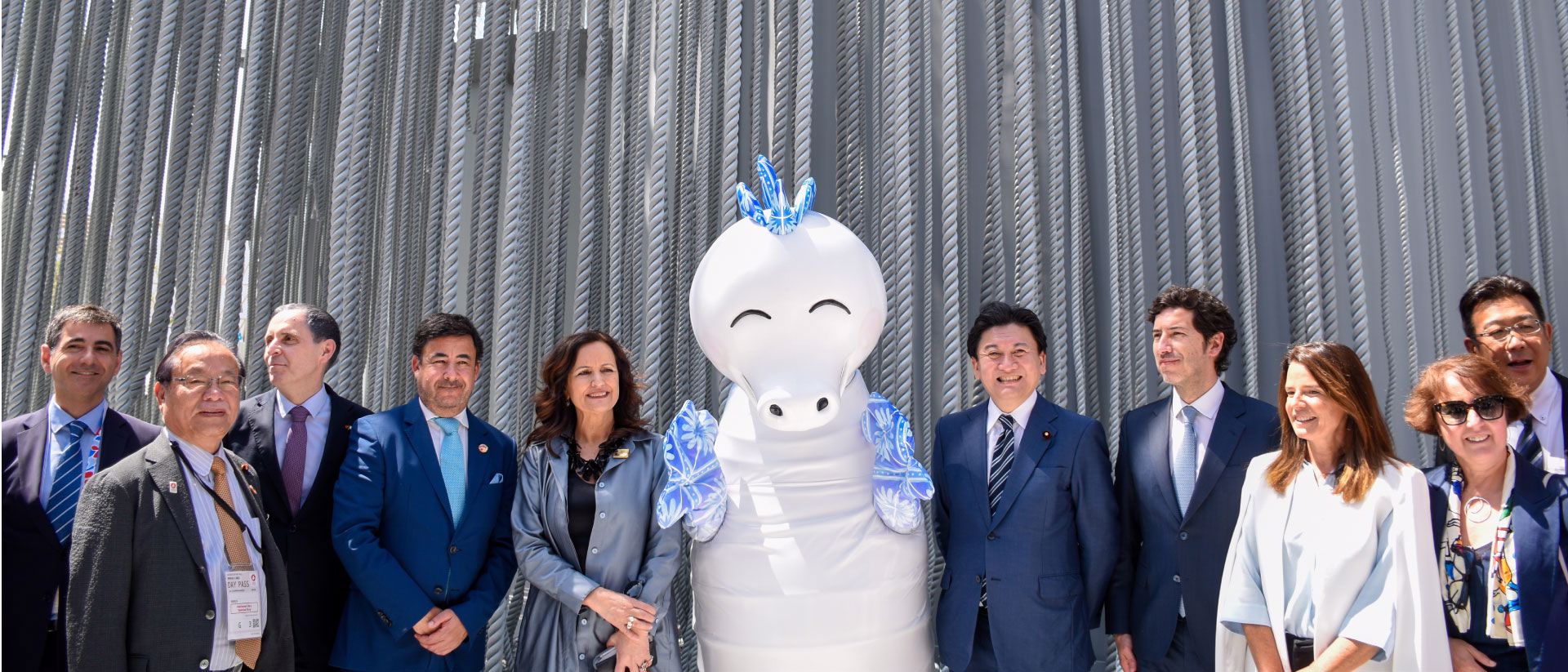On Monday, 5 May, Portugal celebrated its National Day at Expo 2025 Osaka with a programme that brought together music, art, architecture and the Portuguese language, showcasing the country’s cultural diversity and creativity on one of the world’s most prominent international stages.
The occasion was rich in symbolism and emotion, coinciding with two dates of strong identity significance: World Portuguese Language Day, established by UNESCO, and Children’s Day in Japan.
The official ceremony took place in the National Day Hall, the Expo’s central venue dedicated to the national days of participating countries. The event was attended by several Portuguese and Japanese dignitaries, including Portugal’s Minister of Culture, Dalila Rodrigues, who emphasised the importance of the Portuguese language as a bridge between cultures, and Japan’s Minister of Education, Culture, Sports, Science and Technology, Takebe Arata, who highlighted the 500-year history of friendship between the two nations and expressed a desire to further strengthen economic ties.
Throughout the day, the programme placed a spotlight on Portugal’s artistic and cultural identity. In the morning, musician Dino D’Santiago performed on the Expo’s central stage, bringing the energy of Cape Verdean-influenced music and a message of inclusion and identity. Later, the concert No Tempo das Cerejas paid tribute to Amália Rodrigues, the iconic Portuguese singer who represented Portugal at Expo Osaka in 1970. The performance brought together three of fado’s most distinctive voices — Ana Moura, Camané and Ricardo Ribeiro — in a heartfelt homage to Amália’s legacy.
Portuguese architecture also took centre stage with the opening of the exhibition Siza, dedicated to the work of Álvaro Siza Vieira. Curated by Carlos Quintáns Eiras and promoted in partnership with the Calouste Gulbenkian Foundation, the exhibition reaffirmed the international reach of Portuguese architecture and its dialogue with other cultures, particularly Japan. Japanese architect Kengo Kuma, who designed the Portuguese Pavilion at Expo 2025, attended the opening.
As part of the celebrations for World Portuguese Language Day, young Francisco Vieira, winner of a competition organised by the Mundu Nobu association, also performed. His participation underscored the role of the Portuguese language as a vehicle of identity and a unifying force across the Community of Portuguese Speaking Countries — CPLP.
Portugal’s presence at the Expo was further reinforced by strong institutional representation, including the Minister of Culture, the Secretary of State for the Economy, the Secretary of State for Foreign Affairs and Cooperation, the Portuguese Ambassador to Japan, and senior officials from AICEP, Instituto Camões, Turismo de Portugal and Lisbon City Council.
“Expo 2025 Osaka is the perfect stage to present Portugal as an innovative, modern and proactive country.”, remarked Ricardo Arroja, President of AICEP — the public entity responsible for organising Portugal’s participation at the event.




